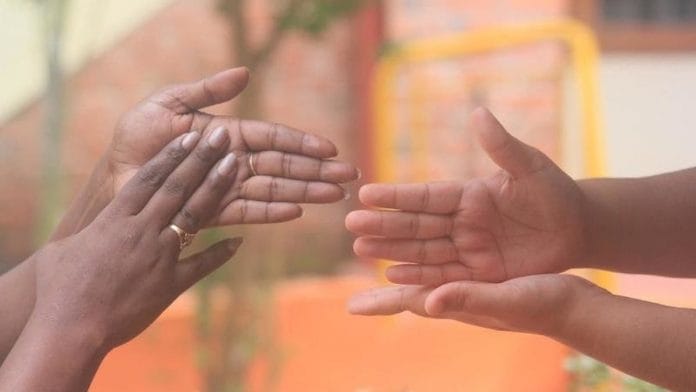It is about time that the prime minister, the health secretary, the finance minister and all the chief ministers who regularly conduct press briefings have an in-frame sign language interpreter.
In recent years, heads of state around the world have been striving to make their press briefs inclusive to cater to the needs of the deaf and the hard of hearing people. The US President Joe Biden has been widely lauded for his efforts in bringing a sign language interpreter to his daily press briefs.
Last year, when the National Association for the Deaf (NAD) sued the White House for not having a sign language interpreter during crucial Covid 19 briefings, the court ruled in favour of NAD pushing the previous president to have a sign language interpreter. More recently, Labour party MP Vicky Foxcroft questioned the UK Prime Minister Boris Johnson about the lack of a sign language interpreter in his new press briefing room.
Also Read: How can Deaf Indians call up Covid-19 helplines? Modi govt must take these steps immediately
Essential for communication
Signs were among the earliest modes of communication between humans before the advent of formal languages. Sign language is the bridge that connects us to the world of those who have impaired hearing or verbal ability. An array of gestures made using hands, fingers, arms, head and facial expressions, besides symbols, constitute sign language. It helps the deaf and the dumb to communicate with the people around them. It enables them to understand the world through visual descriptions, and in turn, contribute to society.
The United Nation Conventions on the Rights of Persons with Disability, 2006, is a comprehensive document accepted internationally aimed at setting a framework for the Member States to protect the rights of disabled people. The convention mentions sign language eight times in five different articles and is the first to do so. It is the first convention to give equal status to signed and spoken languages.
Article 2 of the convention states that, “‘Language’ includes spoken and signed languages and other forms of non-spoken languages”. This allows for the re-interpretation of previous declarations and conventions where any mention of language now includes signed languages.
Article 9 of the convention is the accessibility clause which mandates all the Member States to take all possible steps to make information, communication and technology (ICT) accessible to persons with disabilities. India is one of the signatories to the convention. India has also passed a special legislation, the Rights of Persons with Disability (RPD) Act, 2016, to align the disability legislation at par with international standards. Section 2(f) of the Act defines communication to include sign language and section 42 mandates the government to take appropriate steps to make ICT available to persons with disability in accessible format.
Also Read: Indian Sign Language should be declared official language, but only taught by Deaf trainers
Accessibility guidelines
The Ministry of Information and Broadcasting has issued accessibility guidelines for private TV Channels to broadcast news at least once a day with sign language. But these guidelines are neither followed in letter nor in spirit, and there are no monitoring mechanisms in place to ensure their implementation.
With no sign language interpreters during the press briefs, several thousand deaf and hard of hearing persons are denied an opportunity to understand real-time communications from the prime minister or health secretary or the chief minister of the states, especially about the pandemic, its safety measures, lockdown guidelines etc.
They are also being denied the opportunity to access information, analysis, and update themselves on the many developments that take place in the state. Access to sign language is a basic human right. For deaf people, access to sign language is key to breaking down communication barriers and participating in society just like anyone else.
Also Read: Since 2015, Modi govt has kept no data on persons with disability seeking jobs, RTI shows
Empowering deaf people
Providing sign language interpreters during press briefings would also help raise awareness about sign language. The dearth of information in sign language worldwide marginalises deaf people and hinders their access to services.
The mandate for the government in the RPD Act is not a matter of discretion. India should take all possible steps to make press briefings inclusive and empower millions of deaf people.
Karpagam is the first female visually challenged advocate at the Madras High Court. Views are personal.
(Edited by Srinjoy Dey)






